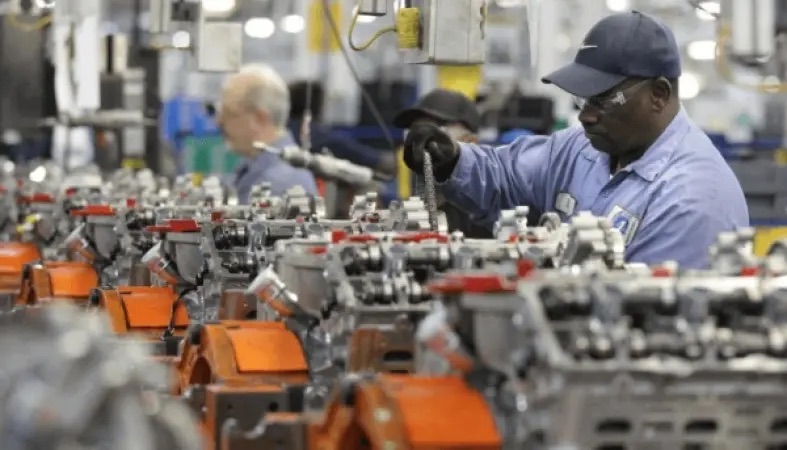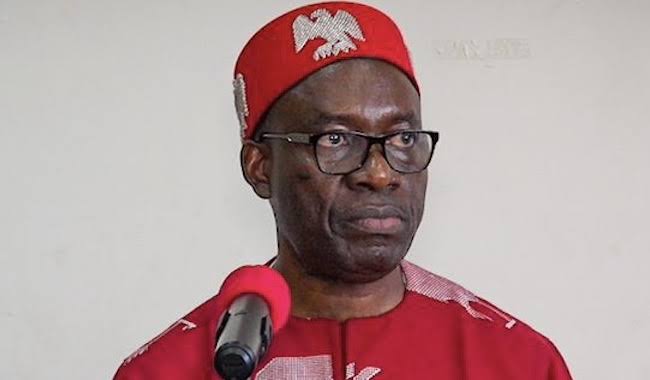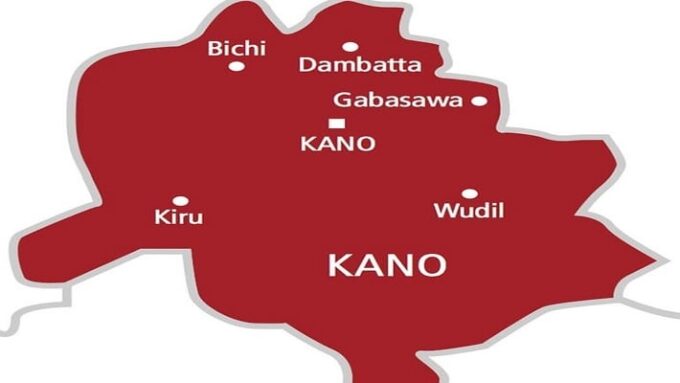• Say N708bn spent on alternative energy in 6 months
By Merit Ibe
Amid rising energy costs and an unreliable national grid, Nigerian manufacturers are fighting hard to stay afloat, having spent a whopping N708 billion on alternative energy sources in the last six months of 2024. The figure is an increase of 75 percent from N404.8 billion in H1 2024.
The Manufacturers Association of Nigeria (MAN), which made the disclosure in Second Half Economic Review 2024, said the crisis has deepened, with unsold finished goods piling up to N2.14 trillion, an 87.5 per cent rise, indicating an alarming shrink in consumer demand, mounting production challenges and declining purchasing power.
The report also pointed out that alternative energy spending surged to N1.11 trillion, a 42.3 per cent increase from N781.68 billion in 2023.
Director General, MAN, Segun Ajayi-Kadir, explained that though the electricity supply situation for industries improved in 2024, with average daily supply increasing to 13.3 hours per day, up from 10.6 hours in 2023, electricity tariffs surged by over 200 percent for Band A consumers, significantly increased manufacturing costs.
“While power availability improved, many manufacturers still faced frequent outages and costs, as the country witnessed 12 national grid collapses, and this remained a major concern,” Ajayi-Kadir said.
In the report, the Food, Beverage & Tobacco sector recorded N229.41 billion in alternative energy spending, up from N182.76 billion in 2023, while Chemical & Pharmaceutical energy costs doubled to N208.68 billion. The Non-Metallic Mineral Products sector’s energy costs increased by 33.7 percent to N118.49 billion, and the Textile, Apparel & Footwear industry saw a fourfold increase, reaching N26.45 billion in 2024, compared to N6.97 billion in 2023.
Ajayi-Kadir noted, however, that a half-on-half decrease of 27.9 percent in H2 2024 suggests improved clearance efforts and price adjustments, adding that the Food, Beverage & Tobacco and Textile, Apparel & Footwear sectors faced the most significant increases in unsold stock.
The MAN boss also lamented rising interest rates, which posed a major financial burden, with commercial bank lending rates to manufacturers surging to 35.5 percent in 2024 from 28.06 percent in 2023. This, he said, was driven by continuous CBN rate hikes, which raised the MPR to 27.50 percent. Consequently, manufacturers’ finance costs totaled N1.3 trillion, constraining investment and expansion plans.
The report revealed that real manufacturing investment fell by 35.3 percent year-on-year to N658.81 billion in 2024, reflecting economic uncertainty and reduced expansion plans. However, H2 2024 witnessed a 19.4 percent increase compared to H1 2024, as manufacturers cautiously resumed capital expenditures. In nominal terms, total investment declined by 11.3 percent to N2.85 trillion, with Land & Buildings and Furniture & Equipment seeing the most significant declines.
Ajayi-Kadir, however, argued that the Nigerian manufacturing sector faced significant hurdles in 2024, including high inflation, forex volatility, surging production costs, and declining consumer demand.
To the DG, while some resilience was observed in sectoral performance and increased local sourcing of raw materials, real output remained subdued.
Moving forward, for sustainable growth and enhanced industrial productivity, Ajayi-Kadir suggested that the government should stabilize macroeconomic conditions, improve energy supply, and ensure access to affordable financing—which are critical.
“The Nigerian manufacturing sector faced a challenging but resilient economy in 2024, navigating macroeconomic instability, inflationary pressures, and policy-driven disruptions.
“The real GDP growth remained subdued, reflecting the economy’s struggle with rising production costs, exchange rate volatility, and declining consumer demand. Inflation surged to 34.8 percent by the end of 2024, significantly eroding purchasing power and increasing operational expenses.
Meanwhile, aggressive monetary tightening by the Central Bank of Nigeria (CBN), which raised the Monetary Policy Rate (MPR) to 27.50 percent, further exacerbated borrowing costs for manufacturers, limiting expansion and new investments.
“Capacity utilization in Nigeria’s manufacturing sector improved marginally to 57.0 percent in 2024, up from 55.1 percent in 2023. A half-on-half analysis showed a 1.2 percentage point increase in H2 2024 compared to H1 2024. However, persistent challenges such as rising energy costs, forex volatility, and high interest rates constrained further growth. Sectoral analysis revealed that Non-Metallic Mineral Products, Motor Vehicle & Miscellaneous Assembly, and Chemical & Pharmaceuticals sectors recorded the highest improvements.
“The sector’s real manufacturing output increased modestly by 1.7 percent year-on-year to N7.78 trillion, buoyed by increased activity in Motor Vehicle & Miscellaneous Assembly, Non-Metallic Mineral Products, and Electrical & Electronics. However, a half-on-half decline of 3.1 percent in real production reflected rising costs and weak consumer demand.
“Nominal manufacturing output rose sharply by 34.9 percent to N33.43 trillion, primarily due to inflationary pressures and rising domestic prices.
“The manufacturing sector’s local raw material sourcing increased to 57.1 percent in 2024, up from 52.0 percent in 2023. This shift was largely driven by forex scarcity, high import costs, and government incentives promoting local content. Notable improvements were observed in Wood & Wood Products, Textile, Apparel & Footwear, and Chemical & Pharmaceuticals, while Electrical & Electronics continued to lag due to dependency on imported components.”


















Leave a comment